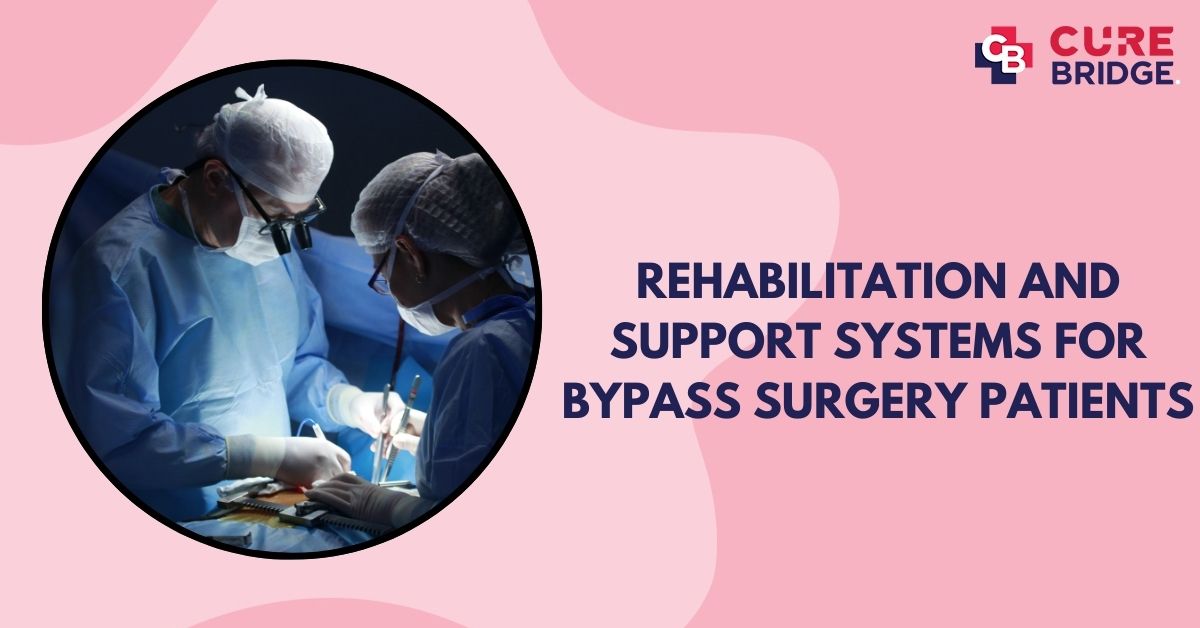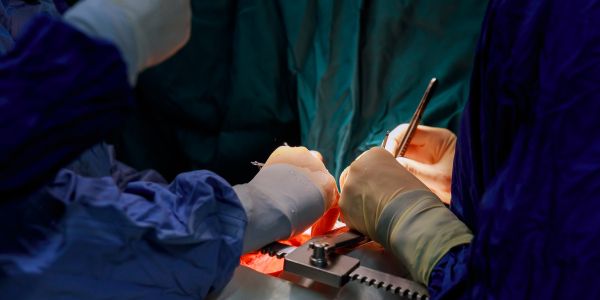
Rehabilitation and Support Systems for Bypass Surgery Patients
A heart attack or heart surgery creates fear. But the good news is that if you plan carefully, you can lead a normal life post-surgery. Adopting a heart-healthy lifestyle is key to maintaining the benefits of your bypass surgery. These lifestyle changes not only aid in your recovery but also help prevent future heart issues. Bypass surgery is a significant procedure that requires comprehensive post-operative care.
This blog will explore the essential aspects of rehabilitation and support systems crucial for bypass surgery patients.
The Importance of Cardiac Rehabilitation
Cardiac rehabilitation is a critical component of recovery after bypass surgery. This program is designed to help you regain physical strength, improve cardiovascular health, and reduce the risk of future heart issues. Cardiac rehabilitation typically includes exercise training, education on heart-healthy living, and counselling to reduce stress. Studies have shown that patients who participate in cardiac rehabilitation programs have better outcomes and a lower risk of complications.

Physical Activity and Exercise
Engaging in regular physical activity is vital for bypass surgery patients. Initially, your activity level will be low, focusing on simple tasks like walking short distances. As your strength improves, you can gradually increase the intensity and duration of your exercises. Your rehabilitation team will create a personalized exercise plan tailored to your specific needs and capabilities. Activities may include walking, cycling, and light strength training. Regular exercise helps improve cardiovascular fitness, muscle strength, and overall well-being.
Nutrition and Diet
A heart-healthy diet plays a significant role in your recovery. After bypass surgery, focusing on eating nutritious foods that support heart health is essential. Your diet should include many fruits, vegetables, whole grains, lean proteins, and healthy fats. Avoid foods high in saturated fats, trans fats, cholesterol, and sodium. A dietitian can help you develop a meal plan that meets your nutritional needs and supports your recovery.
Medication Management
After bypass surgery, you will likely be prescribed several medications to manage your heart condition and prevent complications. These may include blood thinners, cholesterol-lowering drugs, and medications to control blood pressure. It’s crucial to take your medications as prescribed and attend all follow-up appointments with your healthcare provider. They will monitor your progress and adjust your medications as needed.

Emotional and Psychological Support
Recovering from bypass surgery can be emotionally challenging. It’s normal to experience a range of emotions, including anxiety, depression, and stress. Seeking emotional and psychological support is an essential part of your rehabilitation. Support groups, counseling, and therapy can help you cope with the emotional aspects of recovery. Connecting with others who have undergone bypass surgery can provide comfort and reassurance.
Lifestyle Changes for Long-Term Health
Making lasting lifestyle changes is vital for maintaining heart health after bypass surgery. This includes quitting smoking, limiting alcohol intake, managing stress, and maintaining a healthy weight. Adopting these healthy habits can significantly reduce your risk of future heart problems and improve your overall quality of life.
Support Systems
Your family and friends play a crucial role in your recovery. Their support and encouragement can make a significant difference in your rehabilitation journey. Don’t hesitate to lean on them for help with daily tasks, transportation to medical appointments, and emotional support. Your healthcare team, including your cardiologist, surgeon, primary care physician, and rehabilitation specialists, will guide you through your recovery. Regular check-ups and follow-up appointments are essential to monitor your progress and address concerns.
The internet offers a wealth of resources for bypass surgery patients. Online communities and forums can connect you with others who are going through similar experiences. Websites like Curebridge provide valuable information and support for patients and their families. You can find tips on managing your recovery, understanding treatment options, and navigating the healthcare system.

Participating in a structured cardiac rehabilitation program can provide the support and resources you need to recover effectively. These programs offer supervised exercise sessions, education on heart health, and counseling services. They are designed to help you build a strong foundation for long-term health and well-being.
To Sum Up
Taking control of your recovery after bypass surgery is empowering. You can achieve a healthier, happier life with the proper rehabilitation and support systems. Rehabilitation and support systems are essential for a successful recovery. Your heart deserves the best care, and you have the power to make it happen.
People Also Read: Bypass Surgery vs. Angioplasty: Which is Right for You?
